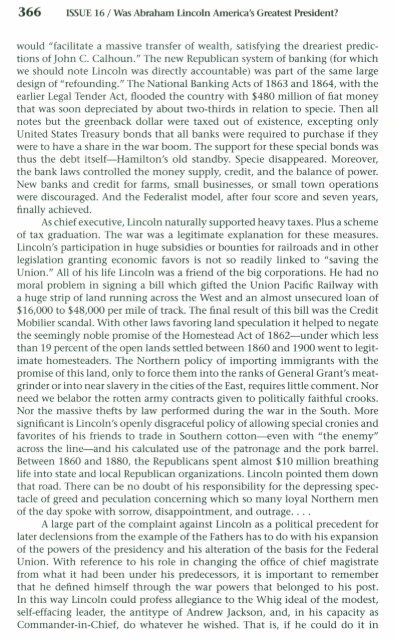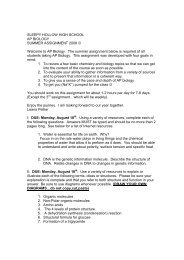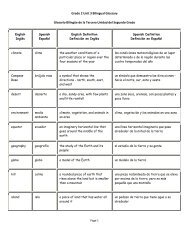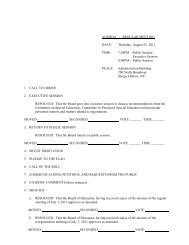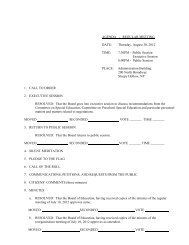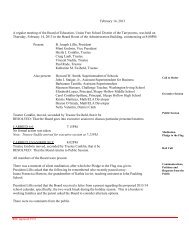Remembering Who We Are: Observations of a Southern Conservative
Remembering Who We Are: Observations of a Southern Conservative
Remembering Who We Are: Observations of a Southern Conservative
Create successful ePaper yourself
Turn your PDF publications into a flip-book with our unique Google optimized e-Paper software.
366 ISSUE16 / WasAbraham Lincoln America'sGreatestPresident?<br />
would "facilitate a massive transfer <strong>of</strong> wealth, satisfying the dreariest predictions<br />
<strong>of</strong> John C. Calhoun." The new Republican system <strong>of</strong> banking (for which<br />
we should note Lincoln was directly accountable) was part <strong>of</strong> the same large<br />
design <strong>of</strong> "refounding." The National Banking Acts <strong>of</strong> 1863 and 1864, with the<br />
earlier LegalTender Act, flooded the country with $480 million <strong>of</strong> fiat money<br />
that was soon depreciated by about two-thirds in relation to specie. Then all<br />
notes but the greenback dollar were taxed out <strong>of</strong> existence, excepting only<br />
United States Treasury bonds that all banks were required to purchase if they<br />
were to have a share in the war boom. The support for these special bonds was<br />
thus the debt itself-Hamilton's old standby. Specie disappeared. Moreover,<br />
the bank laws controlled the money supply, credit, and the balance <strong>of</strong> power.<br />
New banks and credit for farms, small businesses, or small town operations<br />
were discouraged. And the Federalist model, after four score and seven years,<br />
finally achieved.<br />
Aschief executive, Lincoln naturally supported heavy taxes. Plus a scheme<br />
<strong>of</strong> tax graduation. The war was a legitimate explanation for these measures.<br />
Lincoln's participation in huge subsidies or bounties for railroads and in other<br />
legislation granting economic favors is not so readily linked to "saving the<br />
Union." All <strong>of</strong> his life Lincoln was a friend <strong>of</strong> the big corporations. He had no<br />
moral problem in signing a bill which gifted the Union Pacific Railway with<br />
a huge strip <strong>of</strong> land running across the <strong>We</strong>st and an almost unsecured loan <strong>of</strong><br />
$16,000 to $48,000 per mile <strong>of</strong> track. The final result <strong>of</strong> this bill was the Credit<br />
Mobilier scandal. With other laws favoring land speculation it helped to negate<br />
the seemingly noble promise <strong>of</strong> the Homestead Act <strong>of</strong> 1862-under which less<br />
than 19 percent <strong>of</strong> the open lands settled between 1860 and 1900 went to legitimate<br />
homesteaders. The Northern policy <strong>of</strong> importing immigrants with the<br />
promise <strong>of</strong> this land, only to force them into the ranks <strong>of</strong> General Grant's meatgrinder<br />
or into near slavery in the cities <strong>of</strong> the East, requires little comment. Nor<br />
need we belabor the rotten army contracts given to politically faithful crooks.<br />
Nor the massive thefts by law performed during the war in the South. More<br />
significant is Lincoln's openly disgraceful policy <strong>of</strong> allowing special cronies and<br />
favorites <strong>of</strong> his friends to trade in <strong>Southern</strong> cotton-even with "the enemy"<br />
across the line-and his calculated use <strong>of</strong> the patronage and the pork barrel.<br />
Between 1860 and 1880, the Republicans spent almost $10 million breathing<br />
life into state and local Republican organizations. Lincoln pointed them down<br />
that road. There can be no doubt <strong>of</strong> his responsibility for the depressing spectacle<br />
<strong>of</strong> greed and peculation concerning which so many loyal Northern men<br />
<strong>of</strong> the day spoke with sorrow, disappointment, and outrage ....<br />
A large part <strong>of</strong> the complaint against Lincoln as a political precedent for<br />
later declensions from the example <strong>of</strong> the Fathers has to do with his expansion<br />
<strong>of</strong> the powers <strong>of</strong> the presidency and his alteration <strong>of</strong> the basis for the Federal<br />
Union. With reference to his role in changing the <strong>of</strong>fice <strong>of</strong> chief magistrate<br />
from what it had been under his predecessors, it is important to remember<br />
that he defined himself through the war powers that belonged to his post.<br />
In this way Lincoln could pr<strong>of</strong>ess allegiance to the Whig ideal <strong>of</strong> the modest,<br />
self-effacing leader, the antitype <strong>of</strong> Andrew Jackson, and, in his capacity as<br />
Commander-in-Chief, do whatever he wished. That is, if he could do it in


